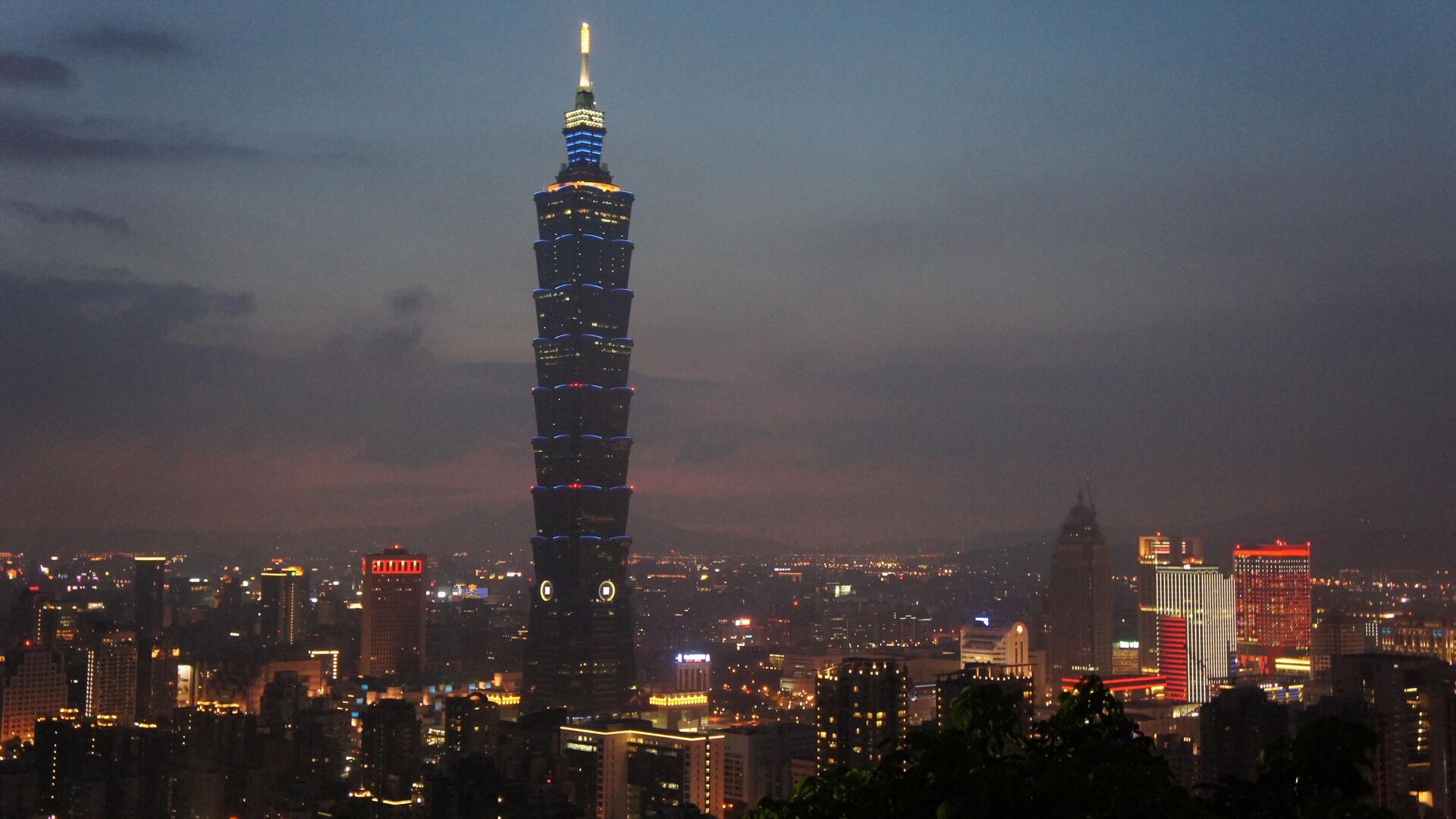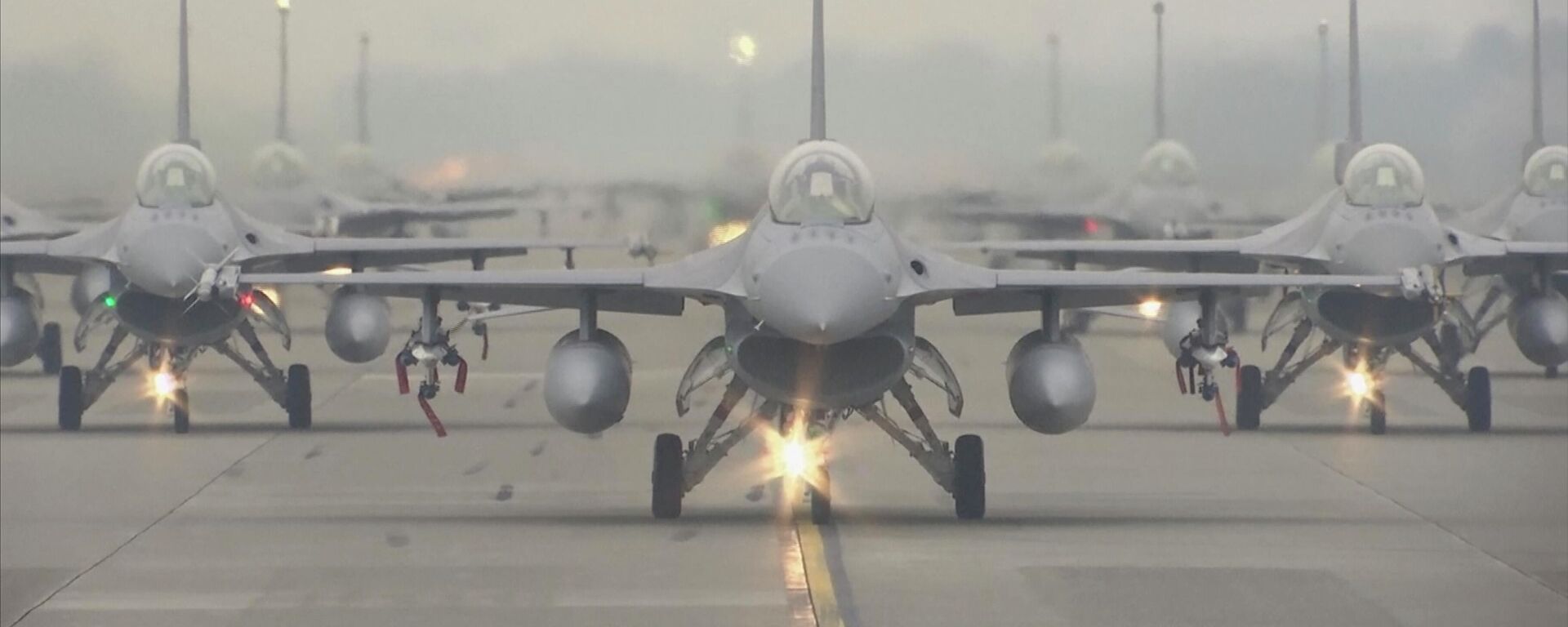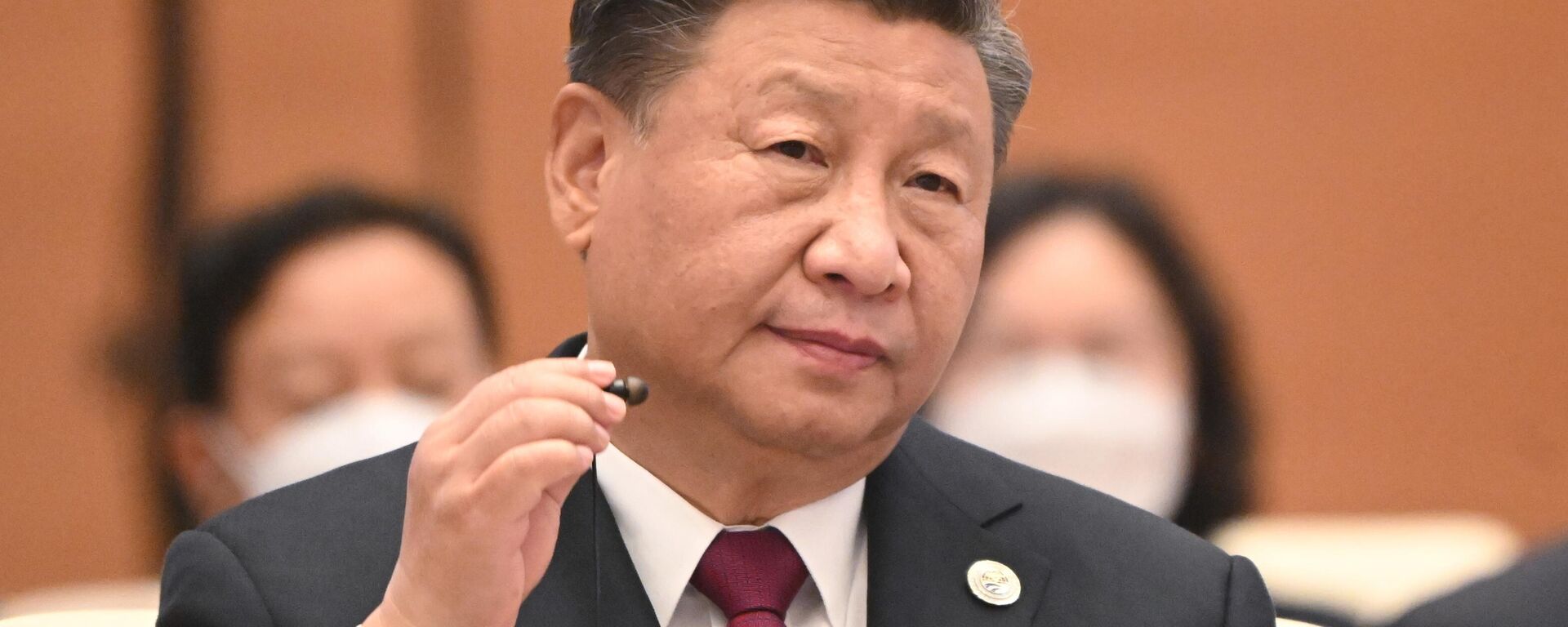Taiwan’s DPP Shelves ‘All-Out Mobilization’ Law Changes Reminiscent of ‘White Terror’ Dictatorship
21:36 GMT 20.03.2023 (Updated: 12:46 GMT 19.06.2023)
Subscribe
Taiwan’s ruling Democratic Progressive Party (DPP), which favors further separation from mainland China, has been forced to halt proposed changes to a key wartime law after criticism swelled against it, motivated by fears of a return to the decadeslong military dictatorship that ended in 1996.
Taiwanese Defense Ministry Chiu Kuo-cheng said on Monday there was “no timetable” for implementing amendments to the All-out Defense Mobilization Readiness Act proposed by the island’s military, according to Taiwanese media.
The announcement came after weeks of opposition in the island’s unicameral legislature as well as on the streets, where more than 30 political groups protested last week. According to Chinese media reports, the groups expressed fears the revisions were a step toward a war footing by the Taiwanese government, and worried such a move made cross-strait hostilities more likely.
Late last month, the Taiwanese military submitted draft revisions of the wartime mobilization law that would have dramatically expanded the government’s power in the event of a war.
It would submit all media organizations, including broadcast and online, to government controls; require education authorities to draw up lists of all students age 16 and above for purposes of mobilization; prohibit hoarding goods or raising prices; and prescribe high fines and years in prison for violating any of its tenets.
“The proposal fails to denote the time frame of mobilization preparation,” said Wu Sz-huai, a retired lieutenant general who now serves as a lawmaker for the Chinese Nationalist Party (KMT), the main parliamentary opposition, as quoted in Chinese media. He said that while the “mobilization implementation stage” was clearly defined as occurring during wartime, the phrase “mobilization preparation phase” in the law is ambiguous, and could be applied during peacetime as well.
After the military proposed the revisions, KMT chairman Eric Chu pledged to block the revisions on the floor of the Legislative Yuan.
Reminiscences of the White Terror
Critics said the revisions were reminiscent of the White Terror, a period of open military dictatorship in Taiwan following the collapse of the Republic of China on the mainland in 1949, during which tens of thousands of dissidents were imprisoned and tortured or killed. The KMT, which controlled the military, implemented a state of emergency amid fears that communist forces who had defeated them on the mainland would soon invade the island of Taiwan as well.
Under the state of emergency, a secret police force called the Taiwan Garrison Command but nicknamed the “KMT Gestapo” was responsible for the persecutions, and became the face of the dictatorship until the state of emergency ended in 1987.
The government on Taiwan calls itself the Republic of China, the government that once ruled all of the Chinese mainland from the time of the 1912 abdication of Pu Yi, the last Chinese emperor, until the Communist Party of China defeated the Republican forces in the Chinese Civil War in 1949, taking over the mainland and founding the People’s Republic of China (PRC) in Beijing. Both the governments in Beijing and Taipei claim to be the legitimate government of all of China, including Taiwan, but in the decades since, all but a handful of countries have switched their recognition from Taipei to Beijing, including the US, which did so in 1979.
Despite this, Washington has continued to openly but informally support the Taiwanese government in its bid to stay autonomous from Beijing, which claims Taiwan as a Chinese province in rebellion.
The KMT’s dictatorship ended in 1996 after years of slow retreat from the state of emergency, triggered in large part by a thoroughly embarrassing incident in which the military attempted to cover up the massacre of 20 civilians on Lieyu Island in 1987. After whistleblowers went public about the shootings, as well as Taiwan’s secret nuclear weapons program, support for the military regime collapsed and the DPP, then an illegal party, snowballed in popularity.
Growing US-China Tensions
The Taiwanese military’s move toward a wartime footing is in keeping with recommendations from Washington, which has pushed Taipei to prepare for asymmetric warfare since Russia launched its special operation in Ukraine last year. US intelligence has made contradictory statements that China is both preparing to invade Taiwan, but also hesitating to do so.
Meanwhile, Beijing has laid out in no uncertain terms its intention to reunify Taiwan with the mainland peacefully under a “One Country, Two Systems” arrangement that would preserve its liberal democratic political and economic structures. At the Chinese National People’s Assembly’s annual meetings earlier this month, Chinese President Xi Jinping urged lawmakers to prepare for the “peaceful development” of cross-strait relations and “unswervingly” promote reunification.
However, Beijing has also taken a firm stance against US support for Taipei, as well as any notions of Taiwan declaring independence from China. After then-US House Speaker Nancy Pelosi made a provocative visit to Taiwan last August, the Chinese People's Liberation Army staged massive military drills around the island that included shooting ballistic missiles over it, in order to demonstrate its ability to totally isolate and overwhelm the island should it make hostile moves on its own.




